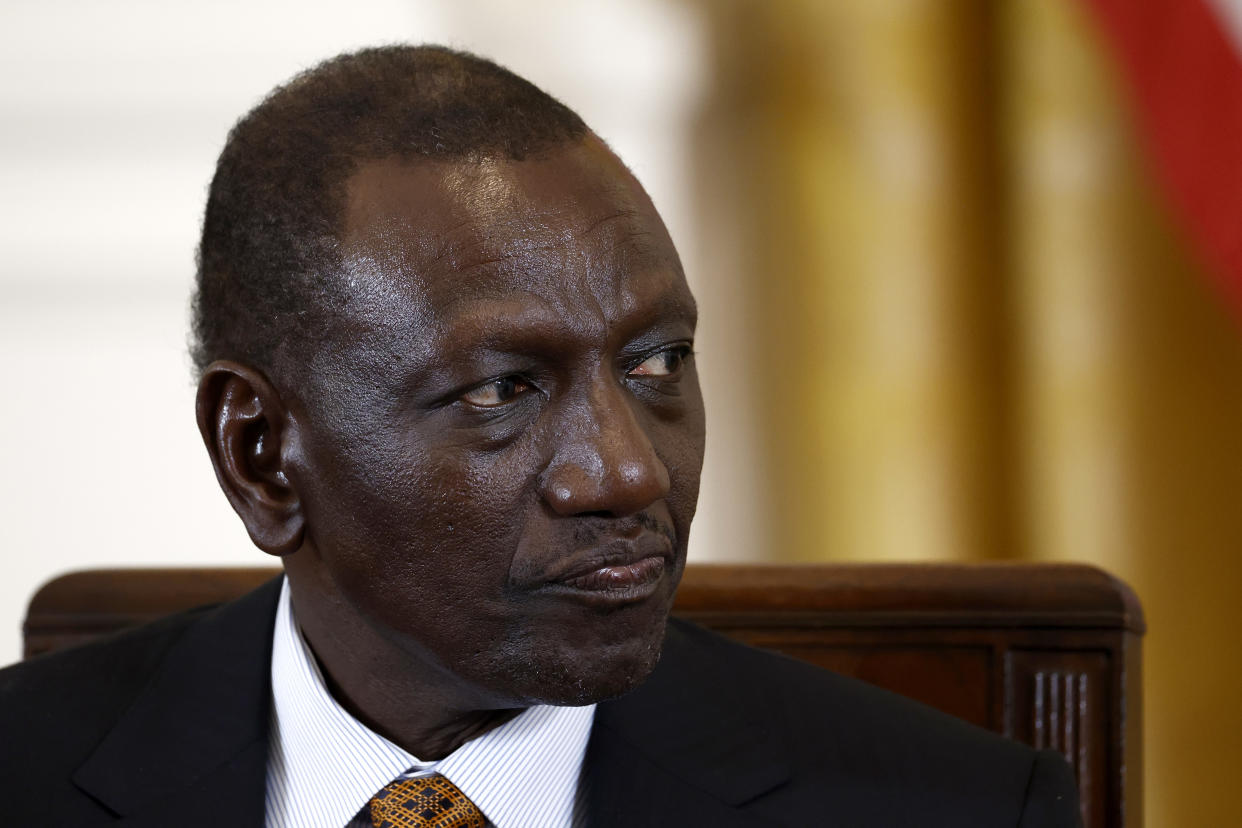Kenyan President William Ruto makes stunning about-face on controversial tax bill

- Oops!Something went wrong.Please try again later.
For years, Kenya has enjoyed the reputation of having one of the fastest-growing economies in all of Africa. Pandemic-era instability aside, Kenya has shown "considerable resilience in the face of recent shocks," and is expected to continue its upward economic trajectory "mainly driven by the private sector as business confidence strengthens and the public sector continues to scale back," The World Bank said this spring. Recently, however, the nation has been roiled by days of civil unrest and deadly riots over a sweeping set of steep tax increases passed by parliament, aimed at combating Kenya's ballooning national debt — and foregoing the possibility of crippling default.
This week, just one day after nearly two dozen protestors were killed in a march in the capital city of Nairobi, Kenyan President William Ruto announced he would not sign into law the controversial tax bill he'd previously championed. "Having reflected on the continuing conversation" and listened "keenly to the people of Kenya who have said loudly that they want nothing to do with this," he said in a televised address on Wednesday, "I concede, and therefore I will not sign the 2024 finance bill." Although muted in size and intensity, anti-government protests have continued in Kenya despite Ruto's abrupt about-face.
'It pains me that we had to wait'
Ruto's decision not to sign Kenya's tax bill "will be seen as a major victory for a week-old, youth-led protest movement" that has morphed from "online condemnations of tax rises into mass rallies demanding a political overhaul," Reuters said. Throughout this crisis, the president has "scuppered a great deal of good will," said Kenyan analyst Nanjala Nyabola to The New York Times. Although Ruto very well "might survive this moment, he has pushed Kenya into such deep, uncharted territory."
Ruto's announcement rejecting the tax bill "should have come earlier," Kenyan analyst Herman Manyora said to CNN. "He has done today what he should have done two days ago" to avoid this week's deaths. "It pains me that we had to wait," Manyora said.
Despite conceding defeat on this tax bill, "some protesters have turned their attention to Ruto's resignation, and are calling for the president to step down," Semafor said. Ruto "hasn't fired a single thief in his cabinet," said activist and protest leader Boniface Mwangi on X. "Even this 'reduced budget' will go into his people's pockets."
The 'Zakayo' president
Since his election in 2022, Ruto's tenure has been plagued by allegations of financial mismanagement and dishonesty from voters who claim he'd "betrayed his campaign pledge to champion the interests of 'hustlers' — those who struggle financially," the BBC said last year. In anti-Ruto circles, the president is referred to mockingly as "Zakayo," the Swahili term for the "biblical figure Zacchaeus, who is portrayed in the Christian holy book as a greedy tax collector."
It's a term Ruto himself has embraced, if only partially in jest. "Since I have already been referred to as Zakayo in some areas, maybe we will have a tax collector day," he joked last year in remarks to the public after filing his taxes.
Given his embrace of the tax man moniker, why would Ruto reject his own tax bill now? "I don't believe it is genuine, I think he is just buying time," said Pan-African think-tank Institute for Security Studies senior researcher Willis Okumu to Al Jazeera. "I think he has been advised that this is politically damaging and most likely Western pressure has played a role." The "arrogance is gone, but the lies are still there," Mwangi seemingly agreed on X.
To effect real change in Kenya, simply pressuring Ruto to back down from this specific tax bill may not be enough. Instead, those protesting should "articulate what they specifically want, rather than just shouting that 'tax is modern-day slavery,'" Kenya's The Star newspaper said.


